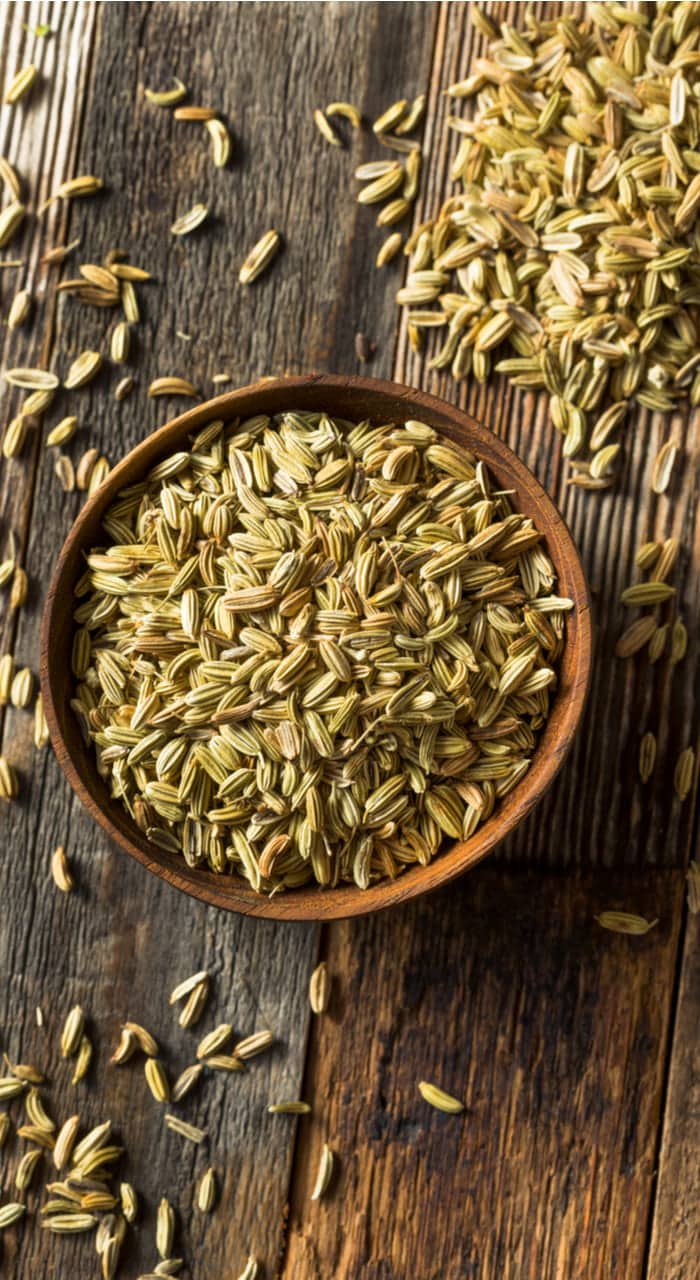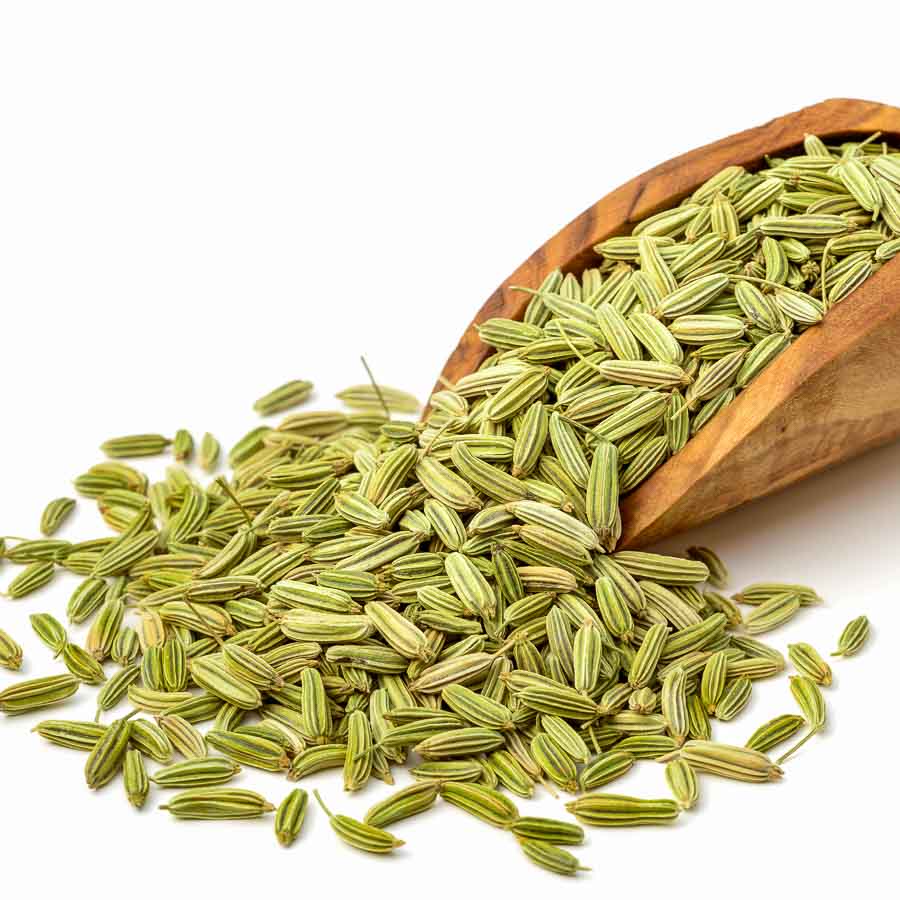
In this article, we will explore the 10 hidden benefits of fennel seeds, supported by scientific research and traditional wisdom. Fennel seeds, often overlooked in the spice cabinet, are a powerhouse of health benefits. Derived from the flowering plant Foeniculum vulgare, these aromatic seeds have been used for centuries in traditional medicine, culinary applications, and even in beauty regimens. Packed with nutrients and essential oils, fennel seeds offer a wide array of health advantages that can enhance your well-being.
Table of Contents
Introduction
Fennel seeds, derived from the Foeniculum vulgare plant, are aromatic seeds that have been cherished for centuries in various culinary and medicinal traditions. Known for their distinct sweet and licorice-like flavor, these seeds are a staple in many cuisines, particularly in Mediterranean and Indian dishes. Beyond their culinary appeal, fennel seeds are packed with a wealth of health benefits, making them a popular choice in herbal remedies.
Rich in essential nutrients, including vitamins, minerals, and antioxidants, fennel seeds have been shown to support digestive health, hormonal balance, and overall wellness. They are particularly noted for their carminative properties, which help alleviate bloating and gas, and their phytoestrogens, which can aid in regulating hormonal fluctuations. Additionally, fennel seeds possess antimicrobial and anti-inflammatory effects, contributing to their reputation as a natural remedy for various ailments.
Whether consumed as a spice, brewed into tea, or used in supplements, fennel seeds offer a flavorful and nutritious addition to any diet. As interest in natural health solutions grows, fennel seeds continue to be recognized for their remarkable versatility and health-promoting qualities.
The 10 Hidden Benefits of Fennel Seeds
1. Rich Nutritional Profile
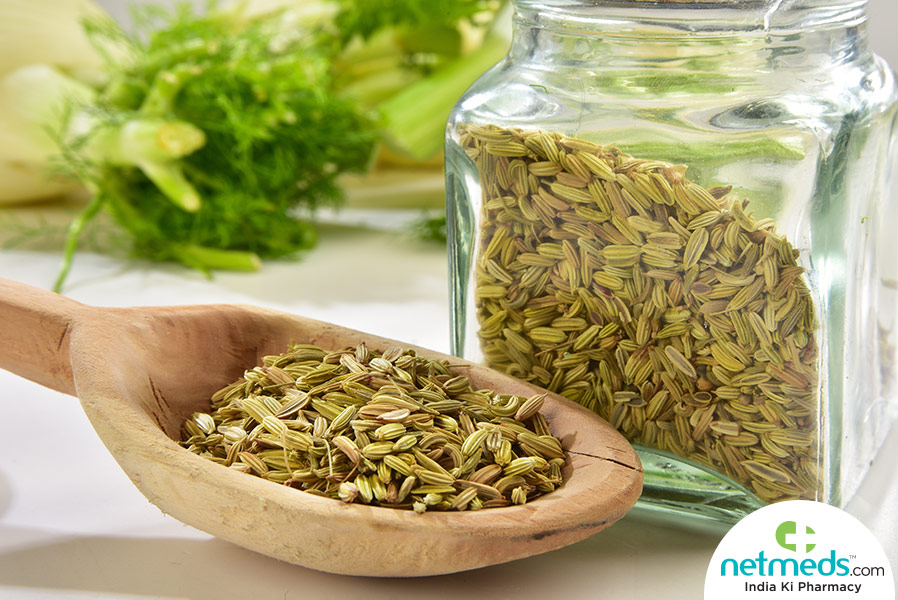
Vitamins and Minerals
Fennel seeds are a good source of several vitamins and minerals, including vitamin C, calcium, iron, magnesium, and potassium. Vitamin C is a powerful antioxidant that supports the immune system and promotes healthy skin. Calcium and magnesium are essential for maintaining strong bones, while potassium helps regulate blood pressure and fluid balance.
Dietary Fiber
One of the standout features of fennel seeds is their high fiber content. A single tablespoon provides a significant amount of dietary fiber, which is crucial for digestive health. Fiber helps regulate bowel movements, prevents constipation, and promotes a healthy gut microbiome. Additionally, a high-fiber diet can aid in weight management by promoting feelings of fullness.
Antioxidants
Fennel seeds are rich in antioxidants, such as flavonoids and phenolic compounds. These antioxidants help combat oxidative stress by neutralizing free radicals in the body, reducing the risk of chronic diseases, including heart disease and cancer.
Healthy Fats
Fennel seeds contain healthy fats, particularly unsaturated fatty acids. These fats are beneficial for heart health and can help lower bad cholesterol levels when consumed in moderation.
2. Digestive Health

Relieving Digestive Discomfort
One of the key benefits of fennel seeds is their carminative effect, which means they help reduce gas and bloating. By relaxing the muscles in the gastrointestinal tract, fennel seeds can ease discomfort and prevent the formation of gas bubbles. This makes them particularly beneficial for individuals prone to bloating and indigestion.
Promoting Healthy Digestion
Fennel seeds are rich in dietary fiber, which is essential for maintaining a healthy digestive system. Fiber aids in regulating bowel movements, preventing constipation, and promoting overall gut health. A diet high in fiber can help support a balanced gut microbiome, which is crucial for nutrient absorption and digestive efficiency.
Alleviating Indigestion
Fennel seeds have been traditionally used to alleviate symptoms of indigestion. Consuming a teaspoon of crushed fennel seeds after a meal can help soothe the digestive tract and reduce feelings of fullness and discomfort. Additionally, fennel tea, made by steeping the seeds in hot water, is a soothing beverage that can aid digestion and relieve stomach cramps.
3. Anti-inflammatory Properties
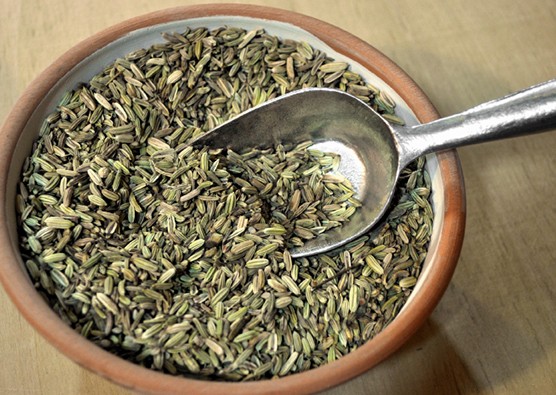
Relieving Digestive Discomfort
One of the key benefits of fennel seeds is their carminative effect, which means they help reduce gas and bloating. By relaxing the muscles in the gastrointestinal tract, fennel seeds can ease discomfort and prevent the formation of gas bubbles. This makes them particularly beneficial for individuals prone to bloating and indigestion.
Promoting Healthy Digestion
Fennel seeds are rich in dietary fiber, which is essential for maintaining a healthy digestive system. Fiber aids in regulating bowel movements, preventing constipation, and promoting overall gut health. A diet high in fiber can help support a balanced gut microbiome, which is crucial for nutrient absorption and digestive efficiency.
Alleviating Indigestion
Fennel seeds have been traditionally used to alleviate symptoms of indigestion. Consuming a teaspoon of crushed fennel seeds after a meal can help soothe the digestive tract and reduce feelings of fullness and discomfort. Additionally, fennel tea, made by steeping the seeds in hot water, is a soothing beverage that can aid digestion and relieve stomach cramps.
Anti-inflammatory Properties
Fennel seeds also possess anti-inflammatory properties that can benefit the digestive system. By reducing inflammation in the gut, fennel seeds may help alleviate conditions like irritable bowel syndrome (IBS) and promote overall digestive health.
4. Hormonal Balance

Phytoestrogens for Hormonal Regulation
One of the standout features of fennel seeds is their high content of phytoestrogens—plant compounds that mimic estrogen in the body. This can be particularly beneficial for women experiencing hormonal fluctuations during menstrual cycles or menopause. By modulating estrogen levels, fennel seeds may help alleviate symptoms such as hot flashes, mood swings, and menstrual discomfort.
Supporting Menstrual Health
Fennel seeds have been traditionally used to regulate menstrual cycles. Their ability to balance hormone levels can help reduce symptoms of premenstrual syndrome (PMS), including irritability, bloating, and cramping. Consuming fennel seeds regularly can promote more regular and comfortable menstrual cycles.
Mood Stabilization
Hormonal imbalances can significantly impact mood and emotional well-being. The compounds in fennel seeds may support neurotransmitter function, which can help stabilize mood and reduce feelings of anxiety and depression. This makes fennel seeds a natural ally during times of hormonal fluctuation.
How to Use Fennel Seeds
Incorporating fennel seeds into your diet is simple and versatile. They can be added to salads, soups, and baked goods, or brewed as a soothing tea. Chewing fennel seeds after meals can also aid digestion and provide additional hormonal benefits.
5. Antioxidant Effects
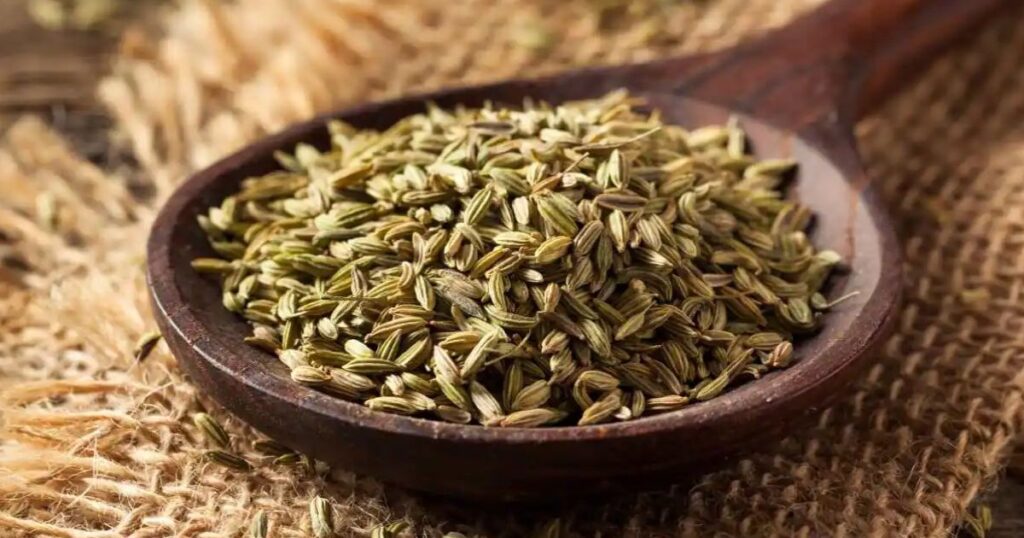
Antioxidant Effects of Fennel Seeds
Rich in Antioxidants: Fennel seeds are abundant in antioxidants such as flavonoids, phenolic compounds, and vitamin C. These compounds play a crucial role in neutralizing free radicals—unstable molecules that can cause cellular damage and contribute to chronic diseases, including heart disease, cancer, and neurodegenerative disorders. By reducing oxidative stress, fennel seeds help protect the body’s cells and tissues.
Flavonoids and Phenolic Compounds: Key antioxidants in fennel seeds, such as quercetin and kaempferol, belong to the flavonoid family. These compounds are known for their strong anti-inflammatory and antioxidant effects. Research suggests that these flavonoids can help lower inflammation, thereby reducing the risk of various health issues. The phenolic compounds in fennel seeds further enhance their antioxidant capacity, making them a potent ally for overall health.
Supporting Immune Function: The antioxidants found in fennel seeds also play a vital role in supporting the immune system. By combating oxidative stress, they help maintain healthy immune function and may reduce the risk of infections and diseases.
How to Incorporate Fennel Seeds
Adding fennel seeds to your diet is simple and enjoyable. They can be sprinkled on salads, included in soups and stews, or brewed as a soothing tea. Chewing on fennel seeds after meals can also aid digestion and provide a burst of antioxidant benefits.
6. Respiratory Support

Benefits for Respiratory Health
Fennel seeds contain compounds such as anethole and fenchone, which possess anti-inflammatory and antispasmodic properties. These qualities make fennel seeds particularly effective in soothing respiratory conditions. Here are some ways they can help:
- Relief from Cough: Fennel seeds can help reduce cough and congestion. The anti-inflammatory properties may help calm irritation in the throat, providing relief from dry coughs.
- Mucus Reduction: Fennel seeds can assist in breaking down mucus and phlegm, facilitating easier breathing. This makes them useful for those suffering from colds or bronchitis.
- Respiratory Infections: The antimicrobial properties of fennel seeds can help combat respiratory infections. Their ability to support the immune system can contribute to overall respiratory health, reducing the likelihood of infections.
How to Use Fennel Seeds
Incorporating fennel seeds into your diet is easy and beneficial. You can chew on the seeds directly, brew them into a soothing tea, or add them to various dishes for flavor and health benefits. Fennel tea, in particular, can provide comfort during respiratory discomfort, as the warmth and soothing properties help ease symptoms.
7. Weight Management

How Fennel Seeds Support Weight Management:
- Appetite Suppression: Fennel seeds are known for their appetite-suppressing properties. The fiber content in fennel seeds helps promote a feeling of fullness, reducing the likelihood of overeating. By curbing cravings, they can assist in managing portion sizes during meals.
- Digestive Health: Proper digestion is essential for weight management. Fennel seeds support digestive health by alleviating bloating and gas, ensuring that your digestive system functions optimally. A healthy gut can enhance nutrient absorption and improve metabolic efficiency, both of which are crucial for maintaining a healthy weight.
- Metabolism Boost: The essential oils and compounds found in fennel seeds, such as anethole, may help stimulate metabolism. A faster metabolism can lead to increased calorie burning, aiding in weight loss efforts.
- Natural Detoxification: Fennel seeds have diuretic properties that can help reduce water retention, promoting detoxification. This can lead to a temporary decrease in weight and a feeling of lightness.
How to Incorporate Fennel Seeds
Adding fennel seeds to your diet is easy. They can be sprinkled on salads, included in smoothies, or brewed as tea. Chewing on fennel seeds after meals can also aid digestion and curb cravings.
8. Heart Health
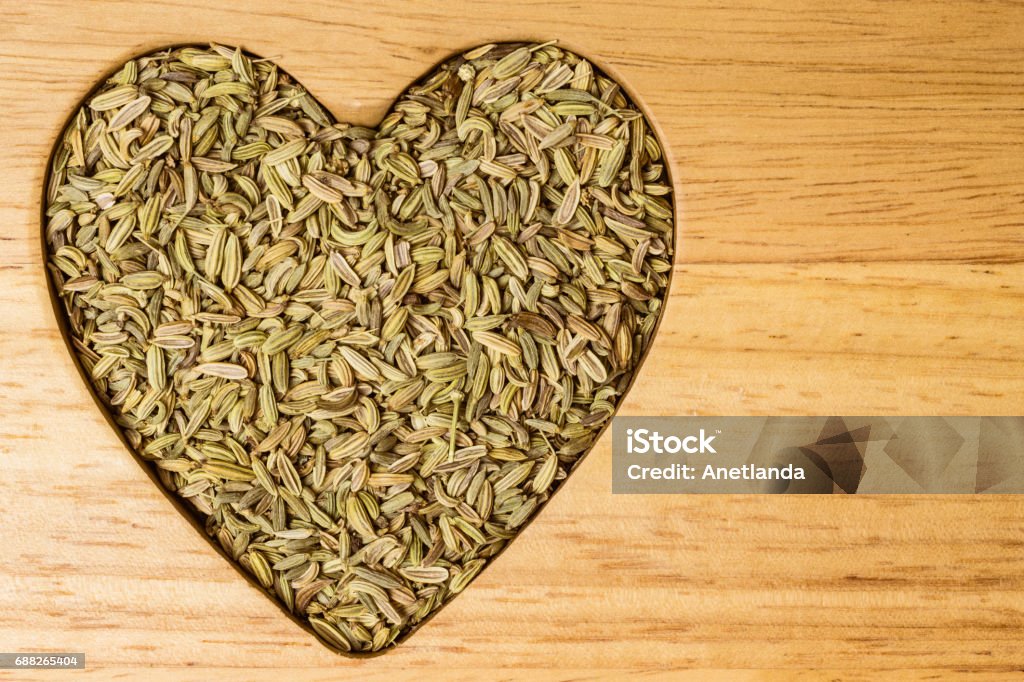
How Fennel Seeds Benefit Heart Health
- Rich in Antioxidants: Fennel seeds are loaded with antioxidants, including flavonoids and phenolic compounds. These antioxidants help combat oxidative stress by neutralizing free radicals in the body. Reducing oxidative damage is crucial for preventing chronic diseases, including heart disease.
- Anti-Inflammatory Properties: The anti-inflammatory compounds found in fennel seeds, such as anethole, can help lower inflammation levels in the body. Chronic inflammation is a key contributor to cardiovascular issues, so incorporating anti-inflammatory foods like fennel seeds can be beneficial for heart health.
- Cholesterol Regulation: Some studies suggest that fennel seeds may help lower bad cholesterol (LDL) levels while promoting good cholesterol (HDL) levels. This balance is essential for maintaining healthy blood vessels and reducing the risk of heart disease.
- Blood Pressure Support: Fennel seeds contain potassium, a mineral known for its role in regulating blood pressure. Adequate potassium intake can help relax blood vessels and improve blood flow, further supporting cardiovascular health.
How to Use Fennel Seeds
Incorporating fennel seeds into your diet is simple. You can add them to salads, soups, and stews, or brew them as a soothing tea. Chewing on fennel seeds after meals can also aid digestion and promote heart health.
9. Skin Benefits

How Fennel Seeds Benefit Skin
Antioxidant Protection: Fennel seeds are rich in antioxidants, including flavonoids and phenolic compounds. These antioxidants help combat free radicals, which can cause oxidative stress and accelerate skin aging. By neutralizing free radicals, fennel seeds can help maintain youthful, healthy skin and reduce the appearance of fine lines and wrinkles.
Anti-Inflammatory Properties: The anti-inflammatory compounds found in fennel seeds, particularly anethole, can soothe irritated skin. This makes fennel seeds beneficial for conditions like acne, eczema, and psoriasis. By reducing inflammation, fennel seeds can help calm redness and promote clearer skin.
Natural Hydration: Fennel seeds also contain essential oils that can help hydrate the skin. Hydrated skin is essential for maintaining elasticity and preventing dryness, which can lead to premature aging. Incorporating fennel seeds into your diet or using fennel seed-infused products can enhance skin moisture levels.
Skin Brightening Effects: Fennel seeds can promote a brighter complexion. They may help reduce pigmentation and even out skin tone, thanks to their ability to enhance circulation and promote cell regeneration. This can result in a more radiant and glowing appearance.
How to Use Fennel Seeds
Incorporating fennel seeds into your skincare routine is easy. You can consume them in teas, add them to smoothies, or use fennel seed oil in topical applications. Additionally, fennel seed paste can be applied directly to the skin to soothe irritation.
10. Antimicrobial Properties
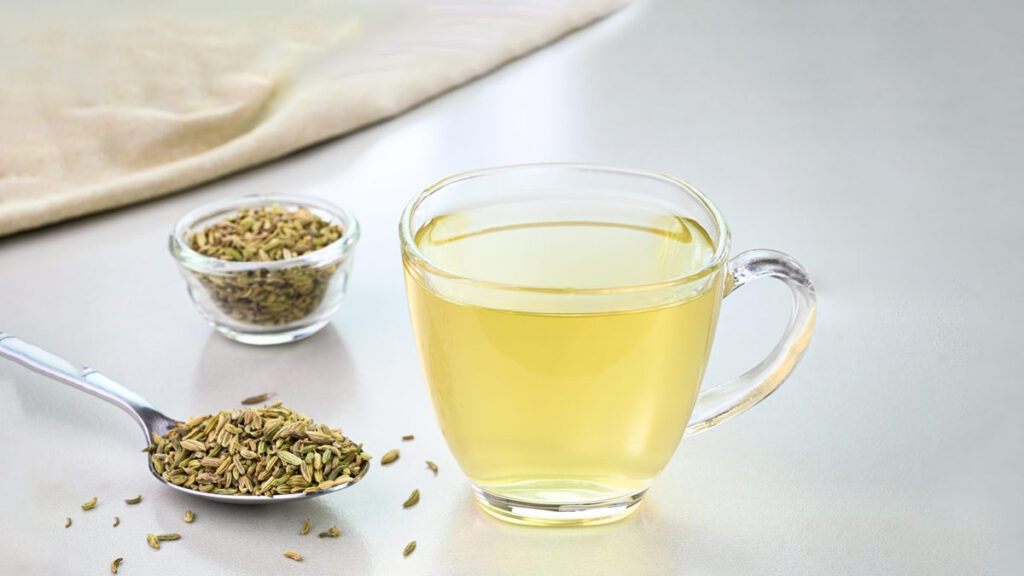
How Fennel Seeds Benefit Antimicrobial Properties
Antimicrobial Compounds: Fennel seeds are rich in essential oils, particularly anethole, which is known for its strong antimicrobial effects. Research has shown that these essential oils can inhibit the growth of various bacteria, fungi, and even some viruses. This makes fennel seeds an effective natural remedy for preventing infections and promoting overall health.
Benefits for Digestive Health: The antimicrobial properties of fennel seeds are especially beneficial for digestive health. They can help combat harmful bacteria in the gut, reducing the risk of gastrointestinal infections. This is particularly important for maintaining a balanced gut microbiome, which plays a crucial role in digestion and overall health.
Culinary Uses: Incorporating fennel seeds into your diet is an easy way to take advantage of their antimicrobial benefits. They can be added to a variety of dishes, including soups, stews, and baked goods. Fennel tea is another great option for enjoying its health benefits.
Conclusion
Fennel seeds are more than just a culinary spice; they are a treasure trove of health benefits. From promoting digestive health and hormonal balance to supporting skin health and heart health, these tiny seeds pack a powerful punch. Incorporating fennel seeds into your daily routine is an easy and effective way to boost your health naturally.
Table of Sources and Benefits
| Benefit | Source |
|---|---|
| Rich Nutritional Profile | USDA National Nutrient Database |
| Digestive Health | Journal of Ethnopharmacology |
| Anti-inflammatory Properties | Journal of Medicinal Food |
| Hormonal Balance | Journal of Nutrition |
| Antioxidant Effects | Free Radical Biology and Medicine |
| Respiratory Support | Phytotherapy Research |
| Weight Management | Obesity Reviews |
| Heart Health | American Journal of Clinical Nutrition |
| Skin Benefits | Journal of Cosmetic Dermatology |
| Antimicrobial Properties | International Journal of Antimicrobial Agents |
In conclusion, fennel seeds are a simple yet powerful addition to your diet that can contribute to overall health and wellness. Whether you sprinkle them on your meals, brew them into tea, or use them in herbal remedies, the benefits of these seeds are undeniable. Embrace fennel seeds and unlock the myriad of health advantages they offer!

